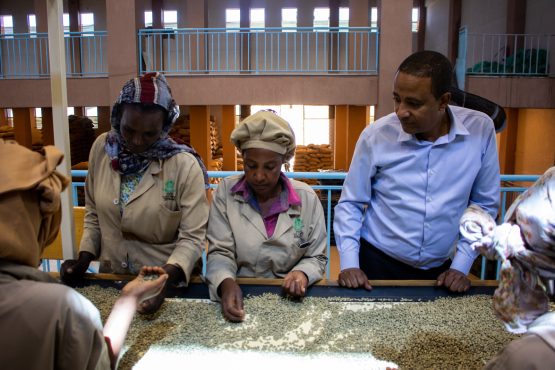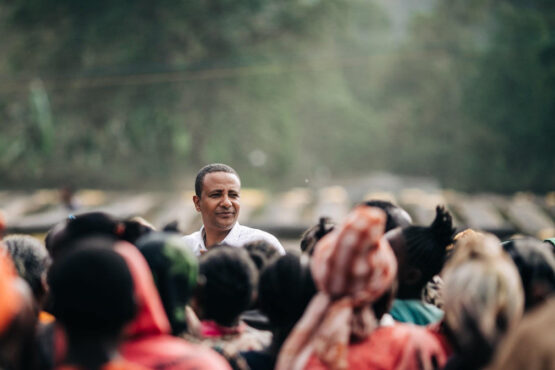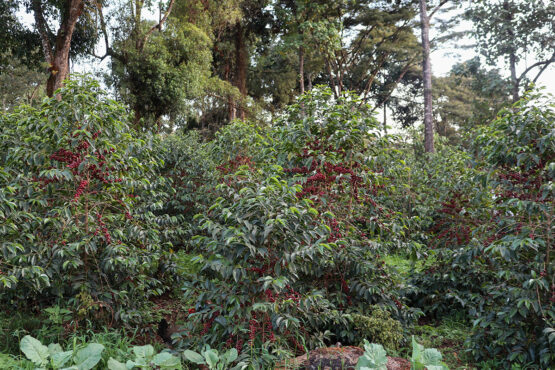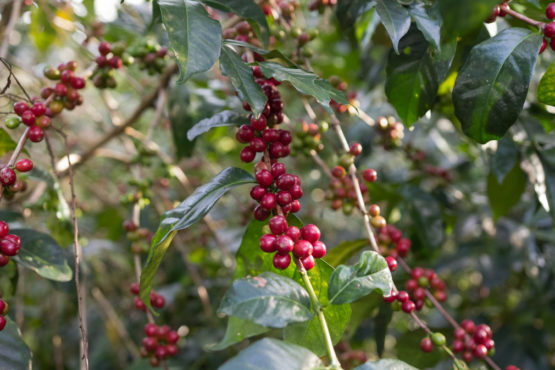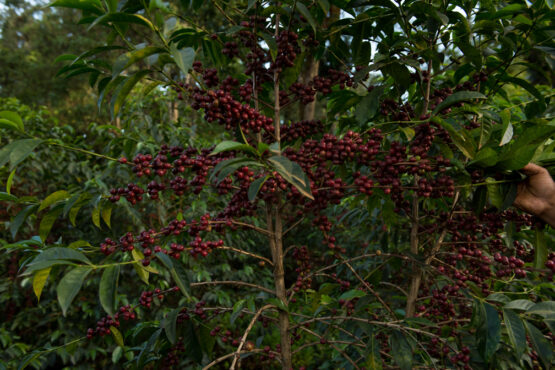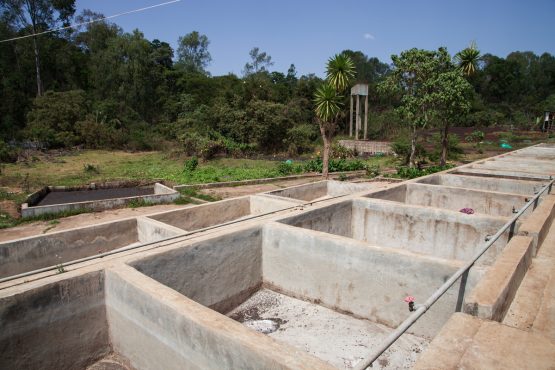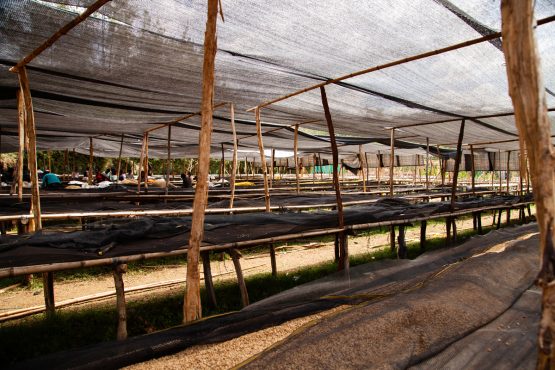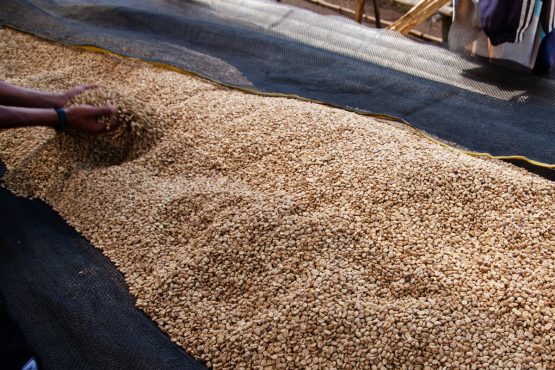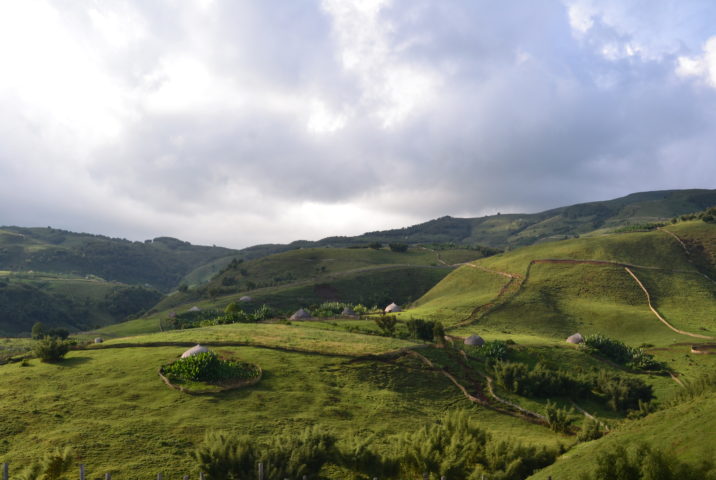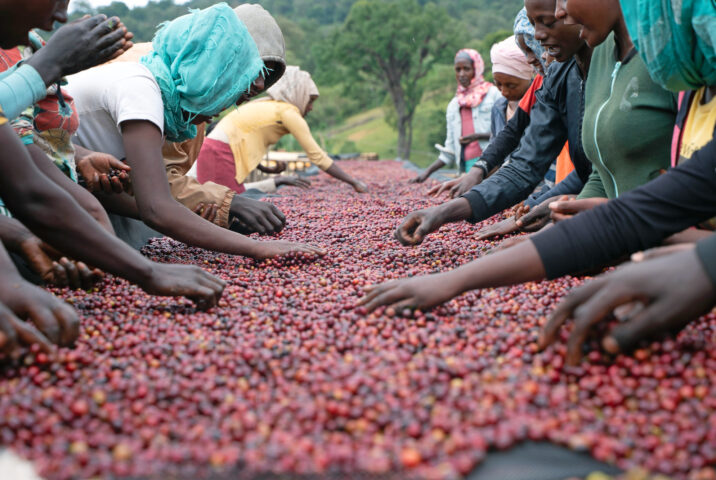Adorsi Washed
Great structure and clarity. Juicy green apple, mandarin and melon, with lingering sweetness.
Adorsi is a privately-owned washing station that is located in the Yirgacheffe woreda (administrative district) in Ethiopia’s Gedeo zone. The washing station is found in the kebele (local village) of Aricha, and is one of 26 owned and managed by Testi Coffee, a family-owned company founded by Mr Faysel A. Yonis.
Sitting at 1,950m above sea level, Adorsi produces exceptional washed, natural and special preparation lots. The washing station was first built in 2001, and was acquired by Testi in 2018. Adorsi is one of Testi’s busiest washing stations: it employs 50 permanent staff and 400 seasonal workers who process a whopping seven containers of washed coffee, ten of naturals, and a little more than a full container of special preparation lots annually.
At Adorsi, Testi separates and processes each kebele’s cherry delivery as a distinct lot, providing extra traceability. This particular coffee comes from the kebele of Aricha, and is made up of cherry grown by 800 outgrowers.
During harvest, freshly picked coffee cherry is delivered daily by some 800 independent outgrowers from ten nearby kebeles, including Aricha, Reko, Gersi, Naga Singage, and Idido. The majority of the families that contribute to this lot farm organically on tiny plots of land, averaging just half a hectare in size. Coffee is their main cash crop and grows alongside food crops of corn, grain and bananas, under the shade of native Birbira, Wanza, and Acacia trees. The average elevation of the farms in this region is very high, averaging between 1,900–2,000m above sea level. This, combined region’s cool temperatures, is ideal for the slow ripening of coffee cherries, leading to denser beans and a sweeter, more complex cup profile.
This coffee lot was produced as part of Testi’s quality improvement initiative, Premium Cherry Selection (PCS). Launched in 2018, the Premium Cherry Selection program ensures that best practices are used for growing, harvesting and processing the coffee cherry. Through the program, Testi pay a premium to farmers who pick and deliver only the ripest cherries from their farms. Coffees produced as part of the program represent the highest quality and cleanest cup profile available from the washing station and wider region. Head here to learn more about Testi Coffee’s work in Ethiopia.
ABOUT THE GEDEO ZONE
The Gedeo Zone is located in southwest Ethiopia, in the SNNPR political region, and is named after the Gedeo people. Historically, coffee from Gedeo has been classified both as “Sidama” and “Yirgacheffe,” with the latter being its most famous coffee-growing woreda, and one of the country’s three trademarked region. With average temperatures between 15-18oC and healthy annual rainfalls, Gedeo is well-suited to coffee-growing. Most coffee is part of a family’s ‘coffee garden,’ and grows alongside other food crops in environments nearly free of fertilisers and pesticides. These lots grow in iron-rich, acidic soils and receive shade from native trees such as Cordia Africana, Acacia, and Ensete trees.
Gedeo is bordered on all sides by the Oromia political region, except for its north, where it is bordered by the Sidama political region. It includes well-known coffee-growing woredas such as Yirgacheffe, Kochere and Gedeb.
ABOUT THE SIDAMA COFFEE REGION
Historically, the Sidama coffee region refers to a wide geographical area encompassing much of central-south Ethiopia, that is well known for producing exceptional natural and washed coffees. The region is located in Ethiopia’s South East Coffee Zone, and includes renowned coffee-producing localities such as Yirgacheffe, Kochere, West Arsi, Bensa and Guji. After a 2019 Referendum, some of the territories within the Sidama coffee region formed an autonomous regional state. This coffee region now extends across the states of Sidama, Oromia and the Southern Nations, Nationalities, and People’s Region (SNNPR), three of eleven ethnically-based regional states of Ethiopia.
Coffees that are grown and processed in Sidama showcase an extremely diverse range of flavour profiles, and are noted for their intensely fruit-forward, tea-like, floral and complex character that is sought after worldwide. It is widely accepted that the coffee species, Arabica, originated in the lush forests of southern forests of Ethiopia and hence growing conditions in this area are perfectly suited for producing exquisite coffees.
The Sidama coffee region is named for the Sidama people, a tribe with a long and proud history of coffee production. Coffee has been here for centuries and is an important source of income for rural households, who grow it as the primary cash crop. Family plots are small and intensively farmed with intercropped coffee, food crops like pulses, grain and yams, and other cash crops like khat (similar to tobacco) and Ethiopian banana. Most farms are planted amongst or alongside indigenous forest trees, which provide a thick canopy of shade for the coffee trees. Historically, farmers in this area will use organic farming practices (although it is unlikely to be certified) as there is no ready access to artificial fertilisers or pesticides.
VARIETY
This coffee is mostly made up of local landrace variety Kurume.
For many years, most Ethiopian coffees have been described as being a mix of cultivated and wild varieties, referred to as “heirloom varieties.” This is a term that is all-encompassing and used by many actors in the coffee industry to generally categorise Ethiopian coffee varieties that are from native forest origins. Whilst “heirloom” describes many of the varieties found in Ethiopia, it is also a bit simplistic and does not acknowledge the varieties that are already locally recognised and purposely cultivated, or those that have been specifically developed and widely distributed by the Jimma Agricultural Research Centre (JARC).
Sidama is home to many landrace varieties that were originally selected from the forest and have been propagated successfully for decades. There are five popular varieties that are named after indigenous trees in the area— Bedessa, Kurume, Mique, Sawe and Wolisho. There is little documentation on the history of these varieties, and it is hard to know if they represent a single plant or a wider group of varieties; however, it is widely accepted that they play a major role in the quality and floral flavour profile of the coffee from this region. JARC varieties were developed using “mother trees” from Ethiopia’s coffee forests, and are now grown for disease and pest resistance, as well as exceptional cup profile, and are released by number. For example, 74110, 74112 and 74116 are all widely propagated in the Sidama growing region.
PROCESSING
This coffee has been processed using the washed method, using clean water from the Wegida river. It is classified as Grade 1, the highest quality classification for Ethiopian coffees, indicating a great deal of effort has been put into the selection and grading during processing.
Each day, carefully hand-picked coffee cherries are delivered to the Adorsi washing station and are meticulously sorted by hand and in a floatation tank prior to processing to remove unripe, overripe, or damaged fruit, in order to enhance the quality and sweetness of the cup.
After sorting, the coffee cherries are then pulped within six to eight hours of harvesting, to remove the fruit and skin and graded by weight; heavier beans are of superior quality and deliver a sweeter cup. After grading, the parchment-covered coffee is soaked in tanks of clean water for 36–48 hours to remove the mucilage (sticky fruit pulp) by allowing it to ferment and detach from the coffee.
The coffee is then re-washed and graded again by density in washing channels and soaked in clean water for 12 hours. While doing this, mill workers keep a close eye on the clarity of the water being used (and replace it with fresh water as necessary), and check the parchment manually to feel how much mucilage is left on the seeds. As the texture of the washed seeds changes, and millworkers notice slightly more traction, parchment is just about ready to be dried.
The coffee is then dried on raised African drying beds and under a parabolic shade net for 5-7 days depending on weather conditions. Whilst drying, the coffee is carefully hand-sorted, and any defects are removed. It is also turned regularly to ensure that it dries evenly and consistently. Once the coffee is dry and has reached its desired humidity, it is rested in parchment until it is ready for milling and export.
HOW THIS COFFEE WAS SOURCED
Since 2018, regulation changes within the Ethiopian coffee industry have allowed smallholder producers and coffee washing stations to export coffee directly to the international market, rather than through the Ethiopian Commodity Exchange (ECX), a model called Vertical Integration. While the ECX has provided stability and opportunity for many Ethiopian coffee farmers, it does not service the specialty market well, as there is an inherent lack of transparency and traceability in its auction model, and more points for potential corruption or confusion between the producing communities and the final buyer.
Vertical Integration enables a more streamlined coffee supply chain and provides an opportunity for the increased traceability and transparency of coffee trade in Ethiopia. Beyond this, producers who market and trade their coffee directly can access higher prices and more direct payments for their coffees. All of the coffee we purchase in Ethiopia is bought outside of the ECX system. Instead, this coffee was sourced directly from Testi Specialty Coffee, who work to produce delicious and consistent coffees while running social programs that directly and meaningfully support coffee farmers and their families.
WHY WE LOVE IT
The word “testi” means happiness in the Harrari language, which is fitting as their coffees make us very happy! Adorsi showcases the distinctiveness and exceptional potential of coffees from Yirgacheffe’s Aricha region. In the cup this coffee is delicate and lifted, with stone fruit acidity and honey sweetness.

